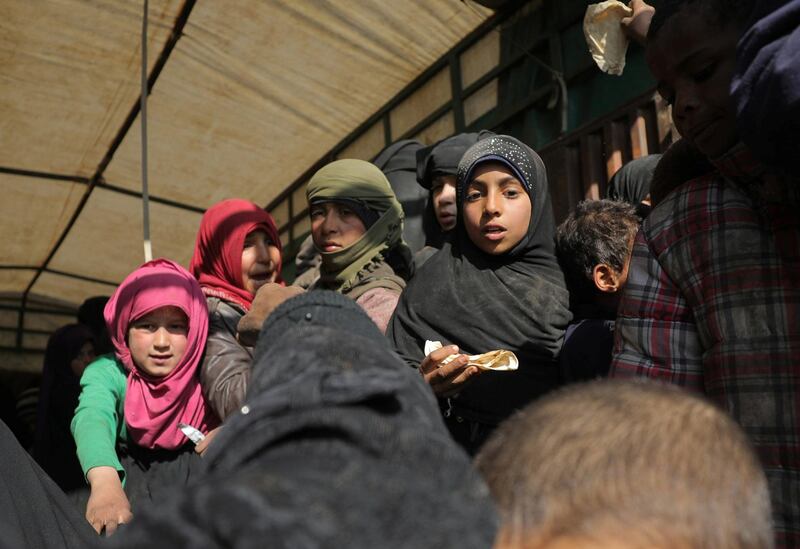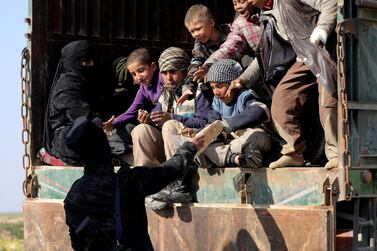More than 2,500 foreign children living in harsh conditions in Syrian camps should be repatriated with their families to their countries of origin, Save the Children said.
Families of the children, from 30 nationalities including French, German, American and British, have links or suspected links to ISIS.
They are living in three camps in north-east Syria without proper health care, food or education, the charity said.
With ISIS depleted and Kurdish-led militia poised to seize the group's last holdout in eastern Syria, western capitals are trying to work out what to do with battle-hardened foreign fighters and their families.
"All states whose nationals are trapped in Syria must take responsibility for their citizens," said Save the Children's Syria representative, Sonia Khush.
"While some states have begun to do so, many countries including several European countries have yet to take steps to ensure the safety of the children and their families."
In some cases, girls recruited by ISIS as children are now mothers. Some of the babies in the camps are only days or weeks old.
The fate of foreign children in Syria has been highlighted by the case of a teenage mother who this week was stripped of her British citizenship after leaving London to join ISIS at 15.
Shamima Begum, now 19, was found in a refugee camp in Syria last week and gave birth to a son at the weekend.
Ms Begum's case has illustrated the ethical, legal and security conundrum governments face when dealing with the families of militants who swore to destroy the West.
Since January, 560 foreign families, including more than 1,100 children, have entered the camps alongside thousands of Syrian families after fleeing fighting, the charity said.
They have joined thousands of other people who had been living in the camps since an offensive on the former ISIS stronghold of Raqqa in 2017.
More than 2,500 children from over 30 countries are living in three camps for people displaced in North-East #Syria. Read more: https://t.co/GcVE3SZ6ee pic.twitter.com/kpHvtgEMIh
— Save the Children US (@SavetheChildren) February 20, 2019
"Some of the adults might face legal proceedings when they go back home for whatever actions they might have done in Syria," Joelle Bassoul, a spokeswoman for Save the Children, said from Beirut in Lebanon.
"But we still call on these countries to take all the steps needed to protect the child because at the end of the day the child is the victim."






